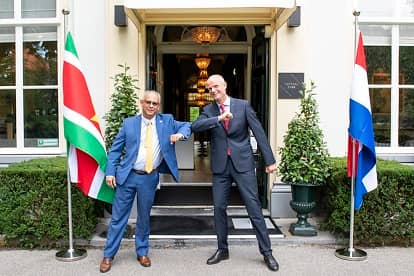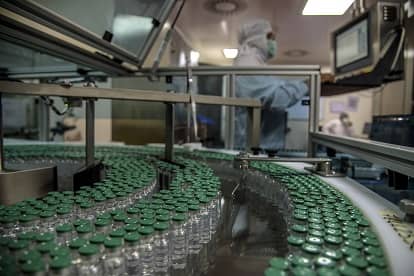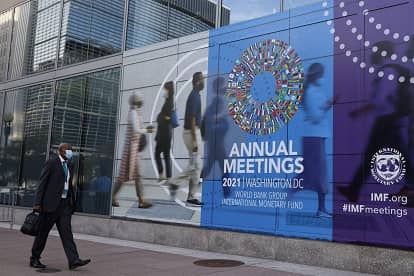IOB evaluated the Dutch development and humanitarian COVID-19 response between 2020 and 2022. This study was conducted jointly with the Organisation for Economic Co-operation and Development (OECD). It is one of ten provider case studies part of the Strategic Joint Evaluation of the COVID-19 Global Evaluation Coalition.
Background

On March 11 2020 the World Health Organisation declared COVID-19 a pandemic. Between 2020 and 2022, the Netherlands responded to this by providing EUR 541 million to combat COVID-19 globally. This was used to achieve objectives on disease prevention, emergency assistance, socio-economic resilience, country readiness and health systems strengthening, and sustainable and inclusive recovery.
Most of the Dutch COVID-19 aid was allocated through multilateral channels. The Netherlands also provided some bilateral in-kind assistance. This case study includes an up-close look at the bilateral aid to Suriname to highlight this type of aid and supplement the overarching findings and conclusions.
To come to a conclusion on the effectiveness and lessons learned, this case study analyses the relevance, coherence and efficiency of the Dutch response.
Main research question
What are the early results of the Dutch development and humanitarian response to COVID-19 and what lessons learned emerged for future crises?
Conclusions

This study shows that the Dutch response likely contributed to overarching international and national goals. The main report contains an extensive description of this.
Investments in prevention measures abroad and heavy support for vaccine distribution through COVAX helped alleviate the global crisis. Action to address gaps in country capacities for vaccine rollouts is likely to have helped mitigate the spread of the coronavirus. However, vaccine availability did not necessarily lead to widespread coverage in partner countries.
The Netherlands aimed to facilitate equitable vaccine distribution through investments and donations. However, the aggressive procurement of vaccines on the global market for domestic use by the Netherlands likely limited the results on this objective.
For example, emphasis was moved from emergency assistance in 2020 to strengthening health systems in 2022. However, political and practical considerations also played a part in shaping the response, particularly in the prioritisation of COVAX and deciding which countries would receive bilateral assistance.
The internal task forces at the Ministry of Foreign Affairs were important drivers of coherence, as well as the decision to primarily support multilateral organisations. However, the interministerial co-ordination experienced some challenges due to ad hoc political decision making.
Political prioritisation of rapid support as well as the decision to select larger partners contributed to the timeliness of the Dutch response. Furthermore, the Netherlands primarily provided unearmarked and pooled funding, which enabled recipients to execute their COVID-19 responses flexibly. The in-kind vaccine donations were late due to legal issues and domestic priorities.
Lessons

The evaluation provides four lessons. An extensive description of these lessons is in the main report.
The Dutch response was informed by relevant information, consultations and staff expertise, however, the evaluation team did not find institutionalized lessons from past crises responses. Different Dutch ministries were guided by different priorities. Combined with occasional ad hoc political decision making, this resulted in strategic uncertainty and incoherence.
Using a strategic crisis response plan, with high level political support, based on previously learned lessons, could counter this.
This study found that the Netherlands could have done more regarding the objective of improving equitable access to vaccines. Contributing to equity objectives is difficult without active steering. Considering the changing international needs and priorities during the pandemic, regular focus on what is necessary to contribute to more equitable access to vaccines could lead to a more effective response in this regard.
During the COVID-19 response, 80% of funding went to multilateral organisations, compared to 49% of regular ODA in the period 2016-2022. This shift in funding towards multilateral organisations was not always driven by strategic decision making, but also by logistical considerations.
Strategic funding decisions in future crises can be enabled by:
- Mapping possibilities for rapid funding of non-multilateral actors
- Removing potential barriers, and
- Conducting a transparent stakeholder analysis
This study found a notable lack of information regarding the outcomes of the Netherlands’ COVID-19 response. While having fewer monitoring and evaluation requirements during a crisis is understandable, this data gap makes learning challenging and also poses challenges to accountability. Exploring ways for more realistic data collection during crisis can contribute to institutionalising learned lessons.



